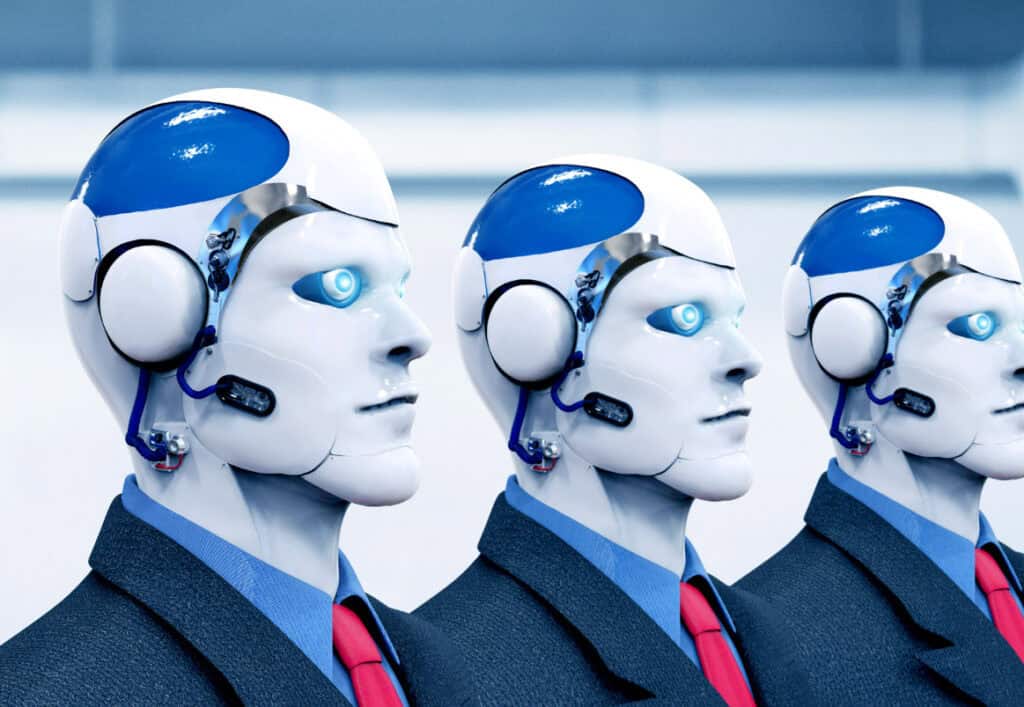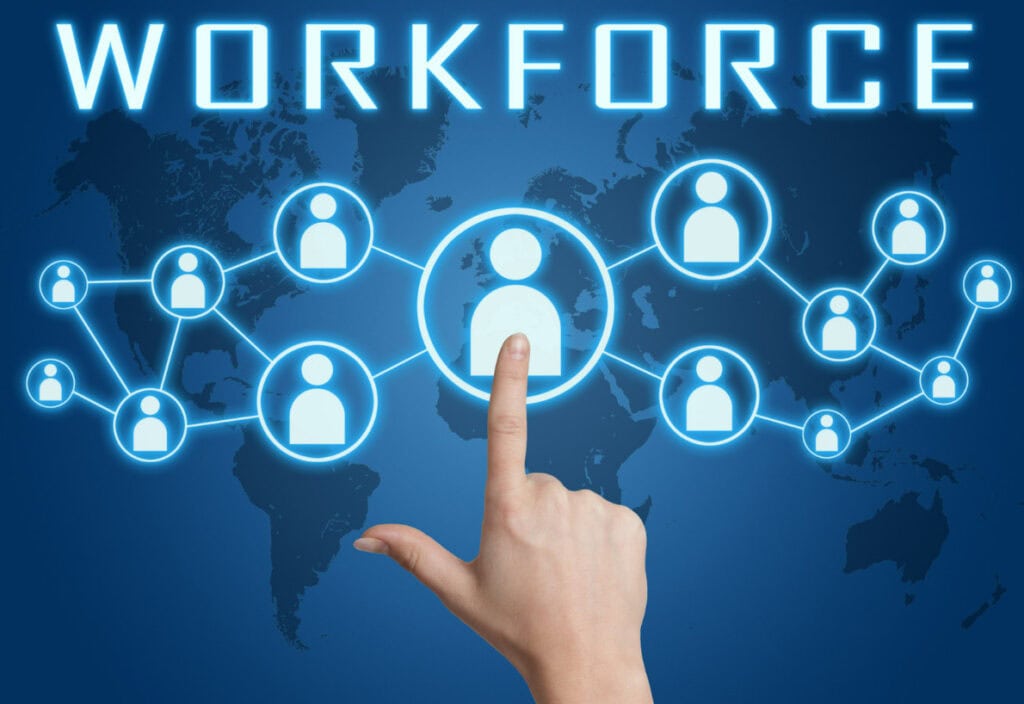AI is making its presence felt in all industries and sectors worldwide. It is improving healthcare services and making manufacturing processes safer. Additionally, AI is building better experiences for customers, workers, and employers.
Table of Contents
Therefore, it makes sense that AI can play a role in workforce management, too. As it is, AI technology is already making a difference in how organizations recruit, retain, and develop employees and their skills.
Let consider the many ways on how AI impacts workforce management – from automating everyday tasks to predicting future training requirements, AI systems position businesses to become highly efficient, boost employee satisfaction, and drive continuous success.

How AI Affects the Recruitment Process
Business success relies heavily on finding the right talent for each department. For decades, this meant HR managers had to work their way through thousands of resumes meticulously. It also meant conducting dozens of interviews, of which most were a waste of time.
AI is redefining recruitment process by offering automated screening. For instance, AI-powered ATS (applicant tracking systems) can quickly analyze incredible amounts of data. This data includes online profiles, social media accounts, cover letters, and resumes.

ATS software can identify keywords and skills while analyzing data. This means the screening process goes much faster, and HR professionals can interview the best candidates sooner.
AI algorithms can even analyze a business’ part hiring data. HR managers can quickly determine which candidates are most likely to succeed. Essentially, AI allows HR departments to adopt a data-driven approach to recruitment.
This approach reduces the risk of a bad hire while improving future hiring quality. While the recruitment process is ongoing, AI can provide other services, too. For example, chatbots can answer candidate questions. It can also streamline the online application queue, improving the candidate experience.
How AI Impacts Workforce Management
AI plays a massive role in how businesses plan and manage their workforce. AI systems can analyze customer data, including foot and online traffic and sales patterns. They can also analyze employee performance related to customer interactions.
AI can then use this data to schedule the staff members required for busy periods. Overall, this improves customer service and cuts down on labor costs.
AI can also forecast future workforce needs. These forecasts are based on information about market trends and existing business growth.
This means businesses can identify skills gaps before they become a problem and address them with training and recruitment.
Moreover, AI can provide detailed reports on performance metrics for each employee. These reports include information about sales targets, reviews from customers, and on-time project completion.
Businesses can use this information to offer coaching and development opportunities for employees who need it.
Boosting Employee Satisfaction
AI can even ensure a happy and engaged workforce. Great strides have been made in creating AI-powered learning platforms. These platforms identify individual employee strengths and weaknesses. Based on the outcome of this process, AI can recommend training programs.
This is one of the best ways for businesses to ensure that employees can upskill themselves.
AI can also help create work schedules for employees to ensure better work-life balance. Therefore, employees will experience less stress and be less prone to burnout.
Furthermore, because AI tools automate various tasks, employees will have more time to focus on important projects. This AI feature also reduces work-related stress and improves departmental efficiency.

AI Is a Supplemental Tool for Workforce Management
However, even with AI’s track record, businesses must use the technology as a supplemental tool rather than a replacement.
AI can do many things and provide many benefits but cannot replace invaluable human knowledge and expertise. An AI system, for instance, cannot replace an employee with 20 years of on-the-job experience.
Many business decisions require critical thinking from employees. These decisions also require an understanding of broader business goals. AI programs cannot take over this process.
Businesses also owe it to their employees to foster a positive work environment and motivate them to deliver their best work. AI can make recommendations and collect feedback but cannot provide human interaction, empathy, and leadership.
The Future of AI in Workforce Management
Still, this does not mean AI has little room to expand in the workplace. When it comes to technical assistance, AI will likely continue to evolve. However, there should always be collaboration without the goal of replacing all departments with AI systems.
Many employees fear that AI will take over their jobs. However, if businesses use this technology responsibly, they can use AI’s capabilities while empowering their employees.
It should never be one or the other. Instead, businesses should always consider how to implement human and AI abilities to benefit everyone.



